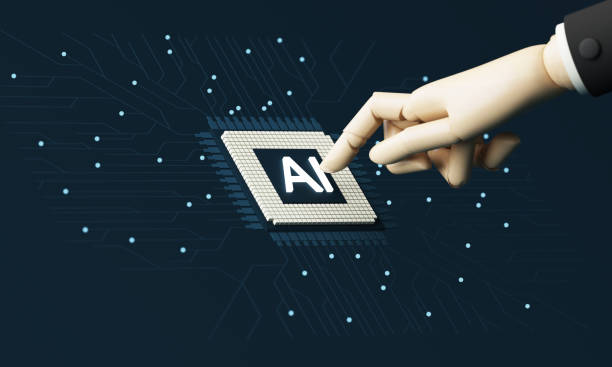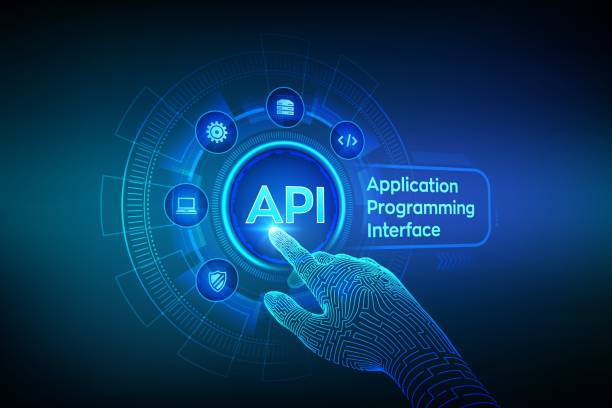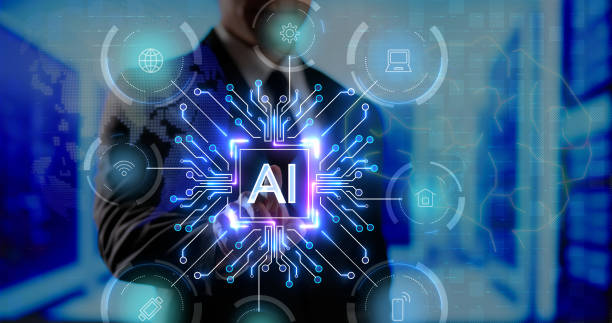What is Artificial Intelligence: Definitions and Basic Concepts

#Artificial_Intelligence (AI), in short, is a branch of computer science that deals with building machines and systems capable of performing tasks that typically require human intelligence.
These tasks can include learning, reasoning, problem-solving, perception, and natural language understanding.
In other words, AI is an effort to simulate human intelligence in machines.
AI systems use algorithms and data to identify patterns and make decisions based on them.
These systems can learn and improve their performance over time.
Artificial intelligence Wikipedia is currently present in many aspects of our lives, including movie and music recommendation systems, self-driving cars, and virtual assistants like Siri and Alexa.
Key concepts in AI include #Machine_Learning, #Deep_Learning, and Natural Language Processing (NLP).
Machine learning enables systems to learn from data without explicit programming.
Deep learning is a subset of machine learning that uses deep neural networks to analyze data.
Natural language processing enables machines to understand and generate human language.
Are you bothered by losing customers due to your online store’s outdated appearance or slow speed? Rasaweb’s expert team solves these problems with professional e-commerce website design!
✅ Increase customer trust and brand credibility
✅ Stunning speed and excellent user experience
Get free consultation with Rasaweb now ⚡
The History of Artificial Intelligence: From Idea to Reality

The history of artificial intelligence dates back to the mid-20th century.
In 1956, a conference was held at Dartmouth College, which is considered a turning point in the formation of artificial intelligence.
At this conference, prominent researchers such as John McCarthy, Marvin Minsky, and Claude Shannon gathered to explore the possibility of building intelligent machines.
In the early decades, AI faced great hopes, and researchers predicted that machines would soon be able to solve the most complex problems.
However, due to hardware and software limitations, the progress of AI was slow during this period, and expectations were not met.
In the 1980s and 1990s, with the development of more powerful computers and new algorithms, artificial intelligence once again gained attention.
Machine learning emerged as a new approach for building intelligent systems.
During this period, expert systems, capable of providing specialized advice in various fields, were developed.
However, these systems also had limitations and could not be widely used.
In the 21st century, with the advent of the internet and the increase in data volume, artificial intelligence rapidly advanced.
Deep learning, using deep neural networks, achieved significant results in many areas, including image recognition, natural language processing, and computer games.
Artificial intelligence AI is now used in many industries and businesses and is expected to play a more important role in our lives in the future.
Diverse Applications of Artificial Intelligence in Today’s World

Artificial intelligence is currently used in a wide range of industries and applications.
In the medical industry, AI is used for diagnosing diseases, developing drugs, and providing personalized healthcare.
In the financial industry, AI is used for fraud detection, risk management, and providing automated financial services.
In the transportation industry, AI is used for developing self-driving cars, optimizing routes, and traffic management.
In the education industry, AI is used for providing personalized education, student assessment, and feedback.
Furthermore, artificial intelligence is also present in many everyday applications.
Movie and music recommendation systems, virtual assistants like Siri and Alexa, and facial recognition systems are examples of AI applications in daily life.
Artificial intelligence is constantly developing and is expected to find more applications in our lives in the future.
Here is a table of some AI applications in various industries
| Industry | AI Application |
|---|---|
| Healthcare | Disease diagnosis, Drug development |
| Finance | Fraud detection, Risk management |
| Transportation | Self-driving cars, Route optimization |
| Education | Personalized learning, Assessment |
Different Types of Artificial Intelligence: A Closer Look

Artificial intelligence can be divided into different categories based on its capabilities and applications.
One of the most common classifications is dividing AI into two general categories: #Narrow_AI and #General_AI.
Narrow AI refers to systems designed to perform a specific task and excel at that task.
Most AI systems used today are examples of narrow AI.
For example, facial recognition systems, language translation systems, and movie and music recommendation systems are all types of narrow AI.
General AI refers to systems capable of performing any task that a human can do.
This type of AI has not yet been fully developed and remains largely theoretical and research-based.
The development of general AI faces many technical and ethical challenges.
Additionally, artificial intelligence can also be divided into different categories based on its learning type.
Supervised machine learning, unsupervised machine learning, and reinforcement learning are examples of machine learning types used in AI.
Each of these learning methods has its own advantages and disadvantages and is suitable for various applications.
Artificial intelligence in machine learning here.
Are your online store visitors leaving before making a purchase? Don’t worry anymore! With Rasaweb’s professional e-commerce website design services, solve the problem of not converting visitors into customers forever!
✅ Significant increase in conversion rates and sales
✅ Unique and engaging user experience
⚡ Call us now for a free consultation!
Machine Learning and its Role in the Development of Artificial Intelligence

Machine learning is one of the most important branches of artificial intelligence that enables systems to learn from data without explicit programming.
In machine learning, an algorithm identifies patterns and relationships in data using training data.
Then, it uses these patterns and relationships to predict or make decisions about new data.
Machine learning is used in many AI applications, including image recognition, natural language processing, and customer behavior prediction.
There are various types of machine learning algorithms, each suitable for specific applications.
Regression algorithms are used for predicting continuous values, classification algorithms for classifying data into different categories, and clustering algorithms for grouping similar data.
The choice of the appropriate algorithm for a specific application depends on the type of data and the desired goal.
Machine learning is constantly developing, and new algorithms are regularly introduced.
Deep learning, using deep neural networks, is one of the newest and most advanced machine learning methods that has achieved significant results in many fields.
Challenges and Limitations of Artificial Intelligence

Despite significant advancements in artificial intelligence, this technology still faces numerous challenges and limitations.
One of the most important challenges is the need for a large volume of training data.
Machine learning algorithms require a large amount of training data to learn patterns and relationships within the data.
Collecting and preparing this data can be time-consuming and costly.
Another issue is the generalizability of AI models.
An AI model trained for a specific application may not perform well in other applications.
To solve this problem, there is a need to develop AI models capable of learning from diverse data and generalizing to different applications.
Furthermore, ethical issues are also a significant challenge in artificial intelligence.
The use of AI in sensitive decisions such as employment, loan approval, and sentencing can lead to discrimination and injustice.
To prevent these problems, there is a need to develop ethical and legal frameworks for the use of AI.
Artificial intelligence has a #powerful_AI and must be well-maintained.
The Future of Artificial Intelligence: What Awaits Us

Artificial intelligence is rapidly advancing and is expected to play a more significant role in our lives in the future.
Some experts predict that in the near future, general AI will be developed, and machines will be able to perform any task that a human can do.
This could lead to fundamental changes in the economy, society, and culture.
Potential future applications of artificial intelligence include further automation of tasks, development of intelligent robots, provision of advanced healthcare services, and solving complex scientific and social problems.
However, the development of AI also comes with challenges and risks.
These risks include job displacement, increased inequality, and the misuse of AI for malicious purposes.
To harness the benefits of AI and mitigate its risks, careful planning and collaboration among governments, companies, and researchers are required.
Here is a table of predictions regarding the future of artificial intelligence in various industries
| Industry | Prediction |
|---|---|
| Healthcare | More accurate disease diagnosis, Personalized treatments |
| Finance | Advanced risk management, Automated financial services |
| Transportation | Fully autonomous vehicles, Optimized traffic |
| Education | Personalized education, Intelligent tutors |
Artificial Intelligence and its Impact on the Job Market

Artificial intelligence can have a significant impact on the job market.
On the one hand, AI can lead to the automation of many tasks and job displacement.
Especially jobs that are repetitive and require low skills are at risk of automation.
On the other hand, AI can also create new jobs.
The development, maintenance, and use of AI systems require skilled professionals in various fields, including computer science, statistics, and mathematics.
Furthermore, AI can increase labor productivity and efficiency, allowing individuals to perform more creative and valuable tasks.
To cope with the impact of AI on the job market, planning and investment in education and skill training are necessary.
Individuals need to acquire new skills that are compatible with the needs of the future job market.
Governments and companies should provide programs to support displaced workers and help them find new jobs.
Additionally, there is a need to review education and training systems to prepare individuals for the future world of work.
Artificial intelligence is accompanied by learning.
Are you disappointed with your online store’s low conversion rate?
Rasaweb, with its professional e-commerce website design, is your definitive solution!
✅ Increase your sales and revenue
✅ Provide an unparalleled user experience for your customers
⚡ Get a free consultation now!
Ethical Issues Surrounding Artificial Intelligence

The development and use of artificial intelligence come with numerous ethical issues.
One of the most important issues is #discrimination_in_AI.
If the training data used to build AI systems contains biases, the AI systems can also act discriminatively.
This can lead to injustice and deprive individuals of equal opportunities.
Another issue is privacy.
AI systems require a large volume of personal data for learning and decision-making.
Collecting and using this data can violate individuals’ privacy.
To address these issues, there is a need to develop ethical and legal frameworks for the use of AI.
These frameworks should help protect individual rights and freedoms, prevent discrimination, and ensure the transparency and accountability of AI systems.
Furthermore, the issue of accountability for decisions made by AI systems is also raised.
If an AI system makes a mistake and harms an individual, who will be responsible? The system developer, the system user, or the system itself? These questions do not yet have definitive answers and require further examination and discussion.
Artificial intelligence is a #learning_AI and ethical considerations must be observed in it.
How Can We Seize the Opportunities of Artificial Intelligence

To leverage the opportunities of artificial intelligence, planning and investment in various fields are necessary.
Governments should formulate policies to support research and development in the field of artificial intelligence.
Companies should design strategies for using AI in their businesses.
Individuals must acquire new skills that are compatible with the needs of the future job market.
Furthermore, public awareness and education about AI are necessary so that people can benefit from this technology and address its risks.
Artificial intelligence has been developed to help humans
To utilize the opportunities of artificial intelligence in business, companies can use AI to automate processes, improve the quality of products and services, and provide personalized services to customers.
For this purpose, companies need to collect and analyze their data, train machine learning algorithms, and integrate AI systems into their infrastructure.
Furthermore, companies must pay attention to ethical and legal issues related to the use of AI and prevent the misuse of this technology.
Artificial intelligence is considered one of the most important sciences in the modern world.
Frequently Asked Questions
| Question | Answer |
|---|---|
| What is the definition of Artificial Intelligence (AI)? | It is a field in computer science that aims to create intelligent machines capable of thinking, learning, problem-solving, and decision-making like humans. |
| Mention some common applications of Artificial Intelligence. | These include self-driving cars, voice assistants (such as Siri and Alexa), recommendation systems (such as Netflix and Amazon), facial recognition, and medical diagnosis. |
| What is the difference between Narrow Artificial Intelligence (ANI) and General Artificial Intelligence (AGI)? | Narrow Artificial Intelligence specializes in one specific task, while General Artificial Intelligence possesses human intellectual ability to perform any cognitive task. |
| What is Machine Learning and its relationship to Artificial Intelligence? | Machine Learning is a branch of Artificial Intelligence that focuses on developing algorithms that allow systems to learn from data without explicit programming. |
| What are Artificial Neural Networks? | They are computational models inspired by the structure and function of the human brain, used in deep learning to process data and discover complex patterns. |
| Mention some ethical challenges related to Artificial Intelligence. | These include privacy issues, bias in data and algorithms, job loss, and accountability in cases of errors or unfair decisions. |
| What is Natural Language Processing (NLP)? | It is a branch of Artificial Intelligence that focuses on enabling computers to understand, interpret, and generate human language in a useful and interactive way. |
| How can Artificial Intelligence affect the job market? | It can lead to the automation of some routine tasks, requiring worker retraining and creating new jobs in areas of designing, developing, and maintaining AI systems. |
| What is Computer Vision? | It is a field in Artificial Intelligence that enables computers to “see,” understand, and interpret images and videos in the same way humans do, allowing them to recognize objects and faces. |
| What is the importance of data in developing Artificial Intelligence systems? | Data is the fuel that powers Artificial Intelligence systems, especially in machine learning. The quality and quantity of data significantly affect the accuracy and performance of models and their ability to learn and make correct decisions. |
And other advertising agency services from Rasaweb in the field of advertising
- Smart UI/UX: An effective tool to improve SEO ranking by using real data.
- Smart Data Analysis: An effective tool to attract customers with marketing automation.
- Smart Sales Automation: Professional optimization to increase click-through rates by optimizing key pages.
- Smart Marketplace: Designed for businesses seeking to manage campaigns through the use of real data.
- Smart Digital Advertising: Revolutionize digital branding with the help of SEO-driven content strategy.
And over hundreds of other services in internet advertising, advertising consulting, and organizational solutions
Internet Advertising | Advertising Strategy | Advertorials
Sources
The Future of AI in Iran
The Impact of AI on the Future
AI Future Guide
The Role of AI in the Future of Jobs
? For your business to shine in the digital world, Rasaweb Afarin, with expertise in multilingual website design and comprehensive digital marketing solutions, is by your side.
📍 Tehran, Mirdamad Street, next to the Central Bank, South Kazeroon Alley, Ramin Alley, No. 6



